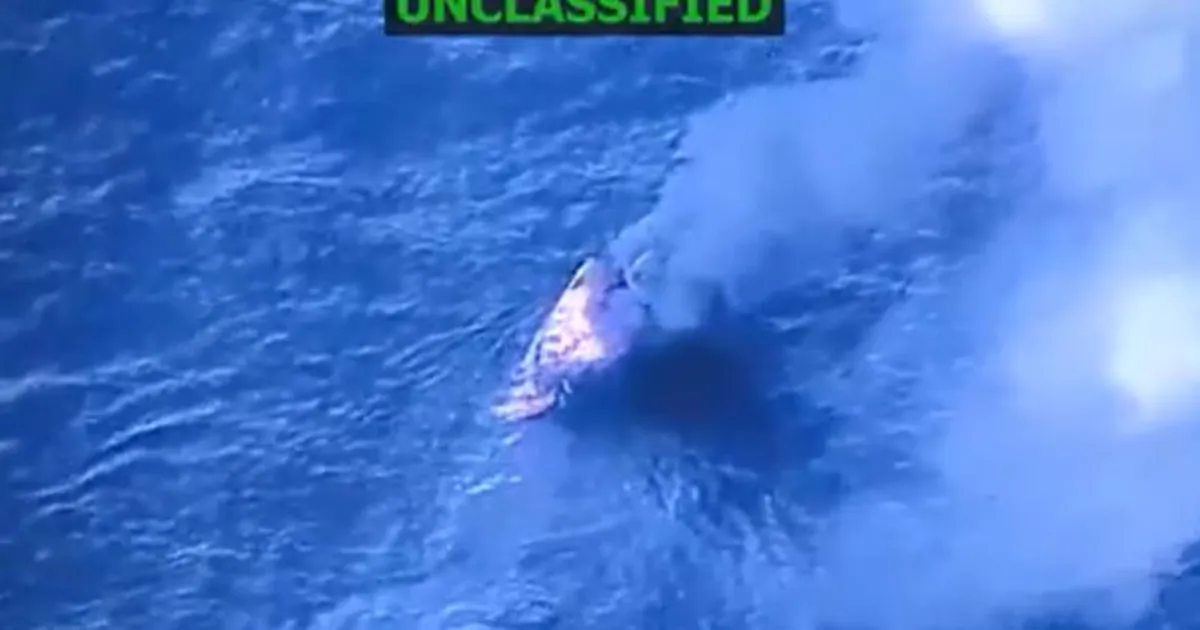
In a significant announcement, the United Nations human rights chief has declared that the recent U.S. military strikes against boats in the Caribbean Sea and eastern Pacific Ocean, which are allegedly transporting illegal drugs from South America, are "unacceptable" and must come to an end. Volker Türk, the U.N. High Commissioner for Human Rights, has called for an immediate investigation into these military actions, marking a notable condemnation from a U.N. organization.
During a regular U.N. briefing on Friday, Ravina Shamdasani, a spokeswoman for Türk's office, emphasized the critical nature of the situation: "These attacks and their mounting human cost are unacceptable. The U.S. must halt such attacks and take all measures necessary to prevent the extrajudicial killing of people aboard these boats." Türk contends that the airstrikes conducted by the United States violate international human rights law.
Despite the U.N.'s strong stance, President Trump has defended these strikes, asserting that targeting what his administration has labeled narco-trafficking vessels is a necessary escalation to combat the influx of drugs into the United States. However, this military campaign has stirred controversy and division among countries in the region, raising concerns over its legality and effectiveness.
On Wednesday, U.S. Defense Secretary Pete Hegseth announced the latest military strike aimed at a boat in the eastern Pacific Ocean, which resulted in the deaths of four individuals on board. This attack marked the 14th strike and the 15th vessel destroyed since the campaign's inception in early September, with the overall death toll now reaching at least 61.
In several instances, U.S. officials have claimed that the targeted boats were connected to the Venezuelan gang Tren de Aragua, which the Trump administration has classified as a terrorist organization. Recently, the administration informed Congress that the U.S. is engaged in a non-international armed conflict with drug cartels designated as terrorist organizations, including Tren de Aragua. This determination was communicated to Congress in September, coinciding with the initial strikes on alleged drug boats.
The notice from the administration referred to three individuals killed in a September 15 strike as "unlawful combatants," a term reminiscent of the language used by former President George W. Bush to describe members of terrorist networks like Al-Qaeda. Following the September 11 attacks in 2001, Congress authorized military force against those responsible for the attacks. However, there has been no such authorization to target drug cartels, and many operational details remain ambiguous, including the specific U.S. forces involved, the intelligence guiding these strikes, and the types of weapons employed.
Colombian President Gustavo Petro has emerged as one of the most vocal critics of these military strikes, openly questioning their legality under international law and their effectiveness in combating drug trafficking gangs during a recent interview with CBS News. In response to Petro's criticisms, the Trump administration sanctioned him last week, claiming he allowed drug cartels to thrive and has failed to address this pressing issue.
Shamdasani highlighted that while the U.S. frames its efforts as part of an anti-drug and counter-terrorism campaign, countries worldwide agree that the fight against illicit drug trafficking should primarily be a law-enforcement matter. She reiterated that the use of lethal force should only be a last resort against individuals posing an imminent threat to life. Otherwise, such actions would violate the right to life and be considered extrajudicial killings. Notably, the strikes are occurring outside the context of armed conflict or active hostilities, raising further ethical and legal questions.